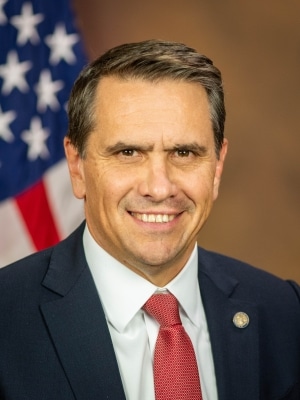Todd Blanche Fails Effort to Force SDNY AUSAs to Frame Themselves
Most reports on the resignation letter from the last three AUSAs on the Eric Adams case focus, justifiably, on its substance. After stating that Deputy Attorney General Todd Blanche would only let them return from paid leave if they confessed wrong-doing they didn’t commit, Celia Cohen, Andrew Rohrbach, and Derek Wikstrom instead resigned.
The Department placed each of us on administrative leave ostensibly to review our, and the Southern District of New York U.S. Attorney’s Office’s, handling of the Adams case. It is now clear that one of the preconditions you have placed on our returning to the Office is that we must express regret and admit some wrongdoing by the Office in connection with the refusal to move to dismiss the case. We will not confess wrongdoing when there was none.
[snip]
Serving in the Southern District of New York has been an honor. There is no greater privilege than to work for an institution whose mandate is to do the right thing, the right way, for the right reasons. We will not abandon this principle to keep our jobs. We resign.
But I’m just as interested in the date: Tuesday’s date, April 22.
The same day that Jay Clayton was apparently installed at SDNY, over Chuck Schumer’s attempt to hold his nomination.
Trump has, in general, conducted his purges before bringing in new leaders, even if (as with Kash Patel) the incoming leader was secretly part of the purge. In any case, the attack on the Adams
prosecutors has been going on for months. Emil Bove first put Wikstrom on paid leave, along with Hagan Scotten, on February 13, over two months ago. He first attempted to smear prosecutors with quotations stripped of context on March 7, by which point he had already rifled through their communications.
In between, Judge Dale Ho pushed back on DOJ’s claims any of these prosecutors engaged in misconduct.
Finally, the parties raise related issues in their briefs that do not appear in DOJ’s Rule 48(a) Motion. For reasons explained below, a court cannot properly grant a Rule 48(a) motion on the basis of rationales that were not raised in the motion. But even considering these additional points on the merits, the Court finds them either inapposite or unsupported by the record. For example, DOJ attaches various exhibits to its brief consisting of communications involving the former prosecution team and asserts that they show “troubling conduct” at USAO-SDNY. DOJ Br. at 1. But these communications were not public until DOJ sought to rely on them; as a matter of logic, they could not have affected “appearances” in this case. Moreover, the notion that DOJ sought dismissal because of improper conduct by the USAO-SDNY prosecution team is belied by the February 10 Decisional Memo itself, which makes clear that DOJ, in reaching its decision, “in no way call[ed] into question the integrity and efforts of the line prosecutors responsible for the case.” February 10 Decisional Memo at 1. At any rate, the Court has reviewed these communications carefully and finds that they do not show any improper motives or violations of ethics canons or the Justice Manual by the USAO-SDNY prosecution team or by former U.S. Attorney Sassoon.49
49 The Justice Department’s Principles of Federal Prosecution state, in relevant part, that “the attorney for the government should commence or recommend federal prosecution if he/she believes that the person’s conduct constitutes a federal offense, and that the admissible evidence will probably be sufficient to obtain and sustain a conviction, unless (1) the prosecution would serve no substantial federal interest; (2) the person is subject to effective prosecution in another jurisdiction; or (3) there exists an adequate non-criminal alternative to prosecution.” U.S. Dep’t of Just., Just. Manual § 9-27.220 (2023). There is nothing in the USAO-SDNY communications indicating a violation of these principles. For example, one communication indicates that a friend of AUSA Scotten believed that he would make a good federal judge. See ECF No. 175-4. The Court has reviewed this communication and finds that it shows nothing noteworthy, only that AUSA Scotten was focused on his current job “first,” rather than on any possible future opportunities. Id. Another communication—an email circulating a draft letter to the Court—refers to the Williams op-ed as a “scandal,” ECF No. 175-3, but the use of that informal shorthand in an email does not suggest that any of the individual AUSAs on the case, or the U.S. Attorney at the time, had any inappropriate motives or otherwise violated Justice Department policy or guidelines. [my emphasis]
Ho thus foiled DOJ’s effort to conduct a Twitter Files attack on these prosecutors, to invent scandal among private messages.
And, apparently, Todd Blanche was left demanding that the prosecutors implicate themselves.
There’s nothing good about a dozen prosecutors ousted from DOJ over Bove’s effort to cover up his own quid pro quo with ginned up claims of wrong-doing. There’s nothing good about Blanche’s overt effort to weaponize DOJ in the name of fighting it.
But amid silence about other prosecutors ousted on similar terms, this seems to mark a clear failure. Thus far, the ethics of the prosecutors have thwarted Bove and Blanche’s efforts to recruit them in their own corruption.


